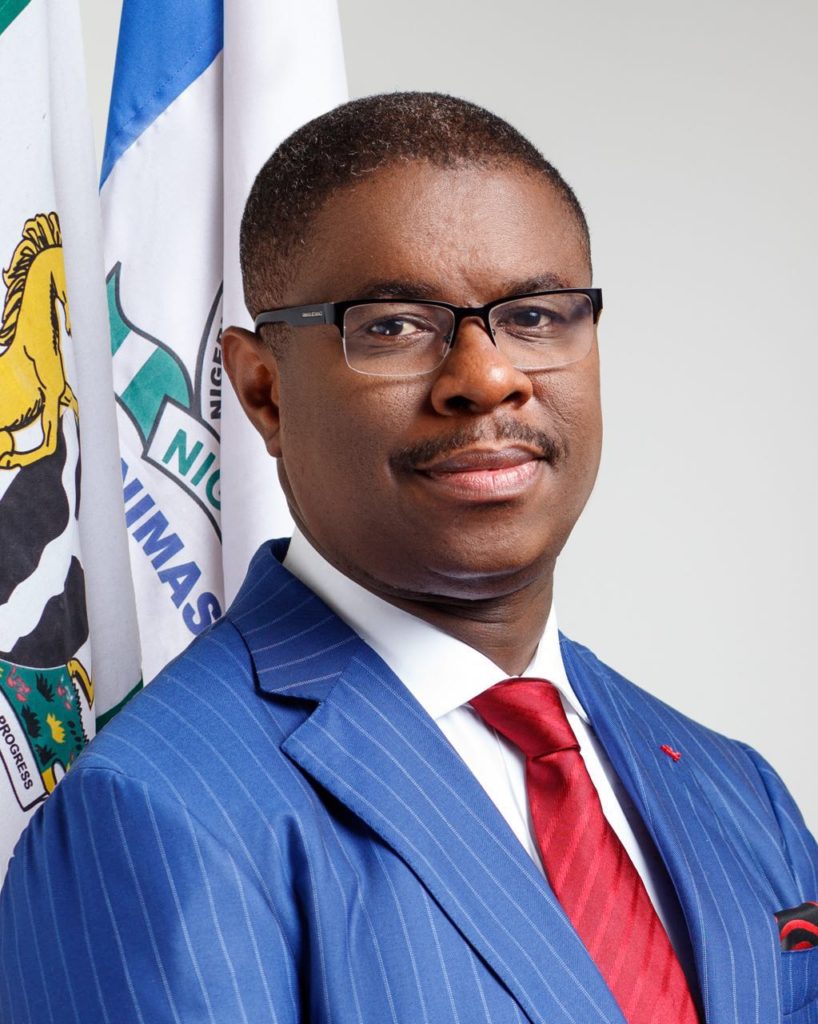The Director General of the Nigerian Maritime Administration and Safety Agency (NIMASA), Dr. Dakuku Peterside has described the Nigerian maritime sector as strategic to tackling issues of insecurity in the Gulf of Guinea (GoG).
Dr. Peterside, who stated this while presenting a paper titled; “Nigeria’s role in combating maritime insecurity in the Gulf of Guinea” at the Royal Institute of International Affairs, Chatham House, London, noted that Nigeria which accounts for 65 per cent of cargo generated and accounts for the largest population within the region is central to the success or otherwise of the fight against piracy in the GoG.
While acknowledging that maritime insecurity has economic, social and environmental implication in the region, the NIMASA DG told the international community that Nigeria is leaving no stone unturned to solve the challenges, which has led it to approaching the menace through a total spectrum maritime strategy which include law enforcement, Regional Cooperation, Response Capability building and enhanced maritime domain awareness for all organs of government responsible for maritime security.
“We in Nigeria have installed satellite surveillance systems, Coastal Radar systems, and the Global Maritime Distress and Safety System GMDSS amongst others. The Anti-Piracy bill which is currently undergoing legislative procedures is aimed at criminalizing piracy and all maritime crimes in the country’s maritime domain with attendant punishment enshrined in the Nigerian legal framework.” He said.
The NIMASA DG noted that the implementation of an Integrated National Surveillance and Waterways Protection Solution with command and control infrastructure in the Agency is part of Nigerian government deep blue contract to enhance security in the Gulf of Guinea.
In his words, “The deliverables from the deep blue project are expected to bolster Nigeria’s maritime security architecture and increase monitoring and compliance enforcement within the Nigerian waters and it’s Exclusive Economic Zone (EEZ)”. The fact that the Nigerian Navy has stepped up its activities in the Nigerian creeks which has seen the figures of illegal refineries destroyed rise exponentially from 97 in 2015 to over 1221 in 2017”.
Dr. Dakuku also cited global maritime piracy statistics obtained from icc-css, which shows a decline in piracy attacks in Nigerian waters from 445 in 2010 to about 180 in 2017 as an indication that the fight against piracy in Nigeria is headed in the right direction.
Accordingly, the NIMASA DG noted that Nigeria’s intervention has led to the establishments of ECOWAS Integrated Maritime Security Strategy (EIMS), and Inter-Regional Coordination Centre (ICC) in Yaoundé Cameroun and that Nigeria played a leading role in the establishment of African Integrated Maritime Security (AIMS).
Speaking further, he highlighted factors that makes Nigeria strategic in the fight against maritime crimes in the region to include; being the country with the highest number of military contingent and might within the region, huge deposit of oil and gas; thereby making it a place of interest for international energy dynamics, the geo-strategical location of Nigeria and the country with the largest delta areas of the world characterized by thousands of creeks.
On the operational level, he disclosed that NIMASA, through collaboration with the Nigerian Navy in 2012-2013 established “Operation Prosperity”, which has seen to the reduction of criminal activities in the region. “NIMASA on behalf of Nigeria also houses one of the five designated Regional Maritime Rescue Coordination Centre (RMRCC)”, he said.
Dr. Peterside who is the current Chairman of the Association of African Maritime Administrations (AAMA) called for continuous collaboration amongst partners across continents and proffered that improved profiling and information sharing on maritime criminality and illegality, enhanced maritime domain awareness and surface to air patrol capabilities, functional legal framework, integration of national inter-agency efforts, youth empowerment programmes amongst others are factors that can help bring solutions to the issues surrounding insecurity in the maritime space.
The Royal Institute of International Affairs, Chatham House, is an independent policy institute based in London with a mission to help build a sustainably secure, prosperous and just world.
The institute engages governments, the private sector, civil society and its members in open debates and private discussions about the most significant developments in international affairs. Each year, the institute runs more than 300 private and public events: conferences, workshops and roundtables in London and internationally with partners. The convening power of the institute attracts world leaders and the best analysts in their respective fields from across the globe.
Send your news, press releases/articles to info@primetimereporters.com. Also, follow us on Twitter @reportersinfo and on Facebook on facebook.com/primetimereporters or call the editor on 07030661526, 08053908817.

